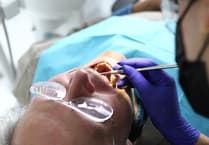A ‘fundamental review of the culture’ needs to take place within Manx Care.
That’s according to one doctor at Noble’s Hospital who completed a ‘Culture of Care’ survey.
Others accused the health service of ‘fake support’, ‘blame culture’ and ‘unacceptable behaviour’, stating that ‘discrimination on race, gender and part-time working is commonplace and this needs to be addressed’.
Another simply said: ‘Abolish Manx Care. It has become a huge, resource hungry, unproductive organisation that is out of touch with the public, staff and patients.’
Results from the survey, which was conducted between February 2 and March 2, were sent anonymously to the Isle of Man Examiner.
The ‘Culture of Care Barometer Survey’ is an independent survey designed by King’s College London and NHS England.
Manx Care confirmed the validity of the survey and its results.
The British Medical Association (BMA) has confirmed to Isle of Man Newspapers that BMA representatives on the Isle of Man distributed the survey to 146 doctors working at Noble’s Hospital, after discussions with management, who agreed that it would provide useful insight into the working culture of the hospital.
It should be noted that only 49 people completed the survey - around a third of those who recieved it - representing only a small proportion of those who work at Noble’s.
According to Manx Care, around 300 people are classed as ‘medical staff’ or ‘medical workforce’ so only around one sixth of the workforce responded.
At Noble’s Hospital, more than 1,700 people work within the clinical care groups within Manx Care, as doctors, nurses, allied health professionals and support staff.
That number was calculated based on Manx Care’s staffing structure rather than a physical location, but on the proviso that clinical care groups would typically be aligned to Noble’s.
Despite these caveats, the responses are damning.
The majority stated they are not well-informed about what is happening in their teams or the organisation as whole.
When asked if they would recommend Manx Care as a good place to work, 62% disagreed or strongly disagreed.
When asked if the organisation has a positive culture, 70% either disagreed or strongly disagreed.
When asked if unacceptable behaviour is consistently tackled, 63% either disagreed or strongly disagreed.
And when asked if there is strong leadership at the highest level in the organisation, 65% either disagreed or strongly disagreed.
Only 2% of respondents agreed that Manx Care listens to staff views.
Most discontent was aimed at management, with support levelled at colleagues.
When asked if they felt respected by their coworkers, 71% agreed or strongly agreed.
And 55% said that when things get difficult, they can rely on their colleagues, with 79% saying that the people they work with are friendly.
The end of the survey invited respondents to speak openly, inviting suggestions on how to improve the organisation.
CRITICISM
This is where the harshest criticism lay.
One respondent said: ‘We are understaffed. We can’t make any progress without enough staff.’
Another said: ‘Start from the top. We need down-to-Earth, visible, clinically credible leaders who are honest, open and inclusive. Patient safety must be paramount, above all else.’
Another said: ‘Get rid of the toxic culture. Stop bullying and discrimination.’
Another added: ‘Managers should be authentic. Words with no action exposes fake support! Managers should truly listen. Weekly emails and video presentation is not communication! They should listen to the concerns from the frontline and have the courage and resources to act on them.’
We asked Manx Care for a response to the survey results.
A spokesperson for Manx Care said: ‘The British Medical Association (BMA) is the trade union and professional body for doctors and medical students in the UK.
‘The BMA’s Culture of Care Barometer is a survey that is used to measure cultural engagement within medical staffing groups across United Kingdom NHS Trusts.
‘This year for the first time, doctors based at Noble’s Hospital were invited to participate in the survey.
‘Just under one quarter of the medical staffing workforce completed this.
‘We are really pleased that we have been able to give our colleagues the opportunity to share their views in structured and recognised way and – for the first time – to be able to establish a cultural baseline from which we can move forward.
‘Developing a strong, supportive working culture and promoting engagement is one of Manx Care’s strategic priorities, and so we very much welcome the opportunity for open dialogue and feedback with our colleagues, which this creates.
‘Through the survey colleagues have highlighted some important ways in which they feel that they and management colleagues can work more closely together, and we look forward to working with them to develop plans which will support the achievement of this.’
They added: ‘We would like to place on record our thanks to all of the colleagues who took the time to provide their feedback and engage with the BMA survey; without sharing open and honest feedback, we will not be able to develop the culture of our organisation.’
FEEDBACK
Prakash Thiagarajan, a consultant at Noble’s Hospital and one of the BMA staff-side representatives, added: ‘The BMA and staff side representatives are working with Manx Care’s senior leadership team to address the feedback highlighted in the survey by some of the respondents.
‘We do not wish for this process to be derailed or distracted by a public debate, and are firmly committed to the development of a positive working culture across the organisation, alongside all of the other groups who are striving to achieve this.’




.jpeg?width=209&height=140&crop=209:145,smart&quality=75)